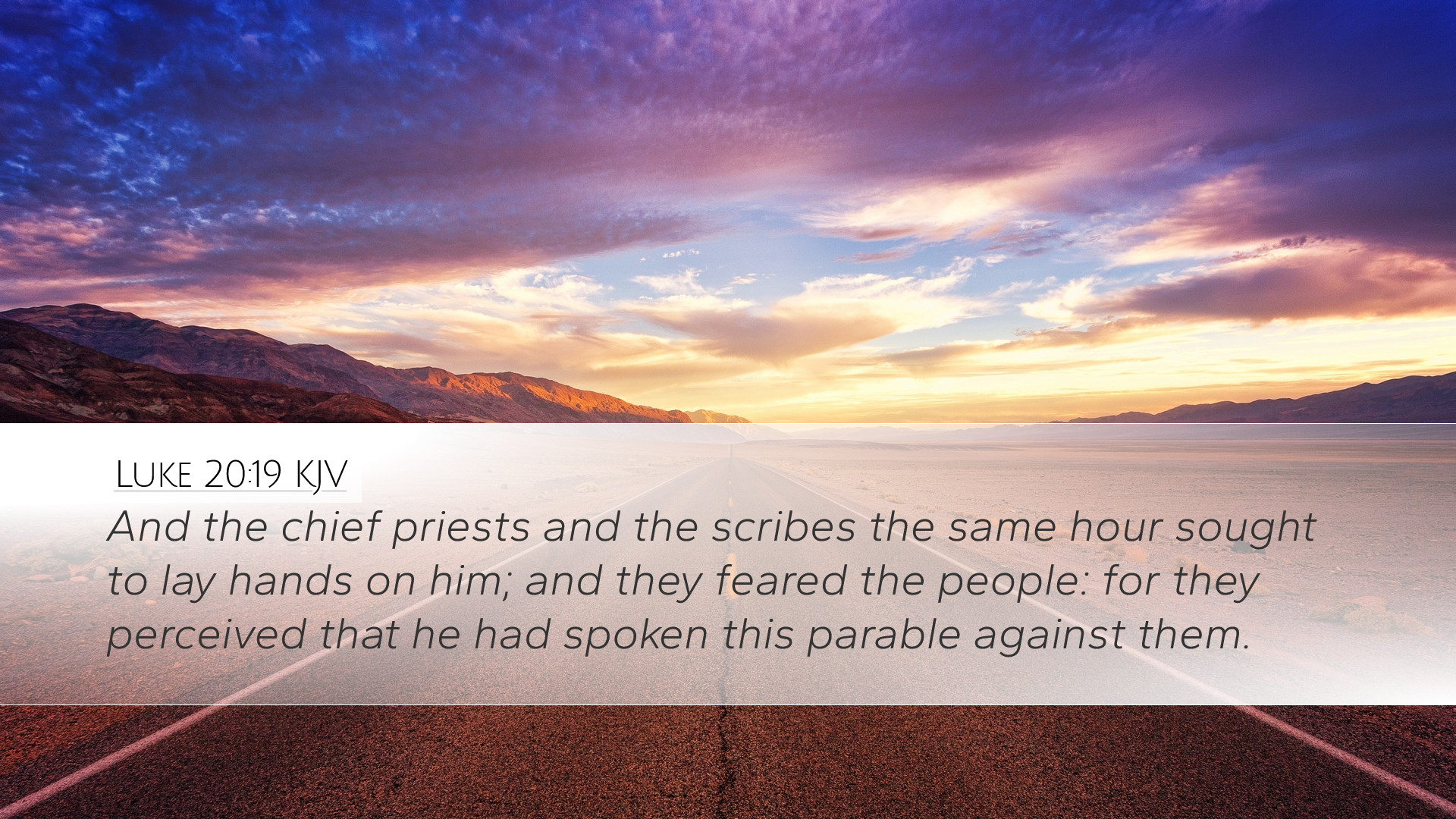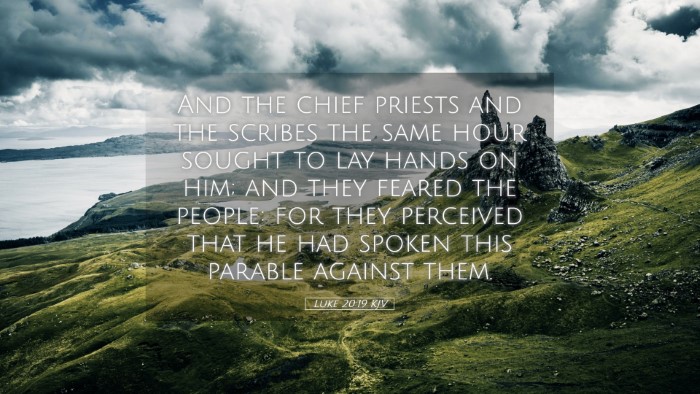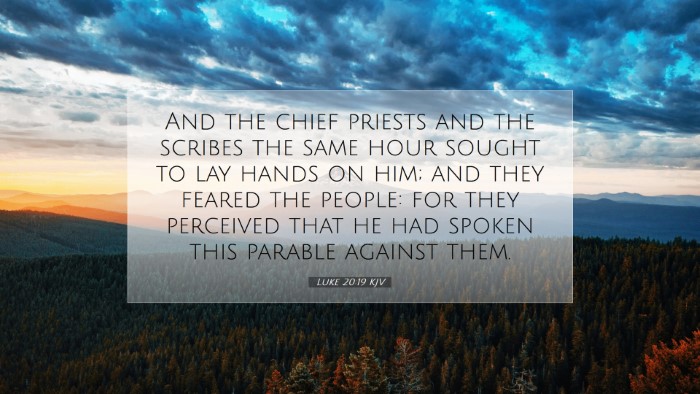Commentary on Luke 20:19
In Luke 20:19, we read: "And the chief priests and the scribes the same hour sought to lay hands on him; and they feared the people: for they perceived that he had spoken this parable against them." This verse captures a pivotal moment in the Gospel narrative, reflecting tensions between Jesus and the religious leaders. Below is a detailed commentary that synthesizes insights from renowned public domain scholars such as Matthew Henry, Albert Barnes, and Adam Clarke.
Context and Background
The events leading to this verse occur shortly after the Parable of the Wicked Tenants. In this parable, Jesus illustrates the rejection of God's messengers and foreshadows His own crucifixion, representing a clear indictment of the spiritual leaders of Israel.
Analysis of Key Themes
-
Opposition to Jesus
Matthew Henry notes that the reaction of the chief priests and scribes demonstrates their hardened hearts. Their immediate desire to arrest Jesus displays the fierce opposition to Christ's ministry and divine authority.
-
Public Perception
Albert Barnes emphasizes the importance of public opinion. The leaders’ fear of the people indicates the precarious position they occupied—conscious that their actions could easily provoke public unrest. Jesus had gained a significant following, and His teachings resonated with the multitudes.
-
Recognition of Judgment
Adam Clarke infers that their understanding of the parable acted as a mirror, reflecting their own guilt. This self-awareness concerning their role as tenants who failed to produce good fruit underscores the theme of judgment that runs throughout Jesus’ teachings.
Application for Modern Readers
This verse serves as a stark reminder about the nature of spiritual leadership and accountability. It challenges pastors and theologians to introspect on their mission and the weight of their stewardship in the light of Christ’s teachings.
Pastoral Reflections
Henry posits that church leaders should beware of becoming too comfortable within religious structures, risking a similar fate as the priests and scribes. Leaders are tasked with guiding their congregations towards spiritual maturity, but must also ensure they remain aligned with Christ’s mission.
Theological Implications
Barnes’ commentary encourages scholars to delve into the theological implications of this confrontation. It is a poignant reminder of the ongoing struggle between divine truth and human authority, a theme pervasive throughout the New Testament.
Ethical Considerations
Clarke's observations also prompt an ethical examination. The fear of man, particularly among leaders, can lead to compromises in the truth of the Gospel. This verse invites the community of faith to prioritize the fear of God above that of pleasing people.
Conclusion
Ultimately, Luke 20:19 serves as a critical reflection on the dynamics of authority, accountability, and recognition of divine truth. It urges those in leadership to both fear and honor God, ensuring their actions align with the righteous path that Jesus exemplified. For scholars, it provides a rich field of study that illuminates the profound tensions present in the early church and the unchanging nature of human resistance to divine revelation.


